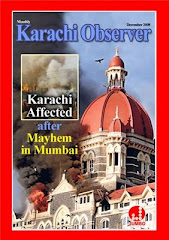
The 14-member larger bench of the Supreme Court of Pakistan on Wednesday summoned former President Pervez Musharraf to defend charges leveled against him for imposing emergency on November 3, 2007.
The larger bench issued a notice to Pervez Musharraf to appear in person or through counsel on July 29.
The PCO judges case hearing was adjourned till July 29.
A 14-member larger bench headed by Chief Justice Iftikhar Muhammed Chaudhry heard the case relating the promulgation of emergency on November 3 and the appointment of judges of higher judiciary.
Giving his remarks, the CJ said justice will not meet its demands, if the court gives verdict without giving explanation chance to Musharraf; thereupon, Sindh High Court Bar counsel Hamid Khan retorted former Gen Yahya Khan appeared before court in Aasma Gilani case.
The CJ said the case is highly important.
CJ Chaudhry queried Hamid Khan Advocate regarding the repercussions of the verdict of this case, adding, ‘We will have to muse seriously why July 5, 77 happened, what effects judicial rulings had on national life.’
‘The case may have effects on our judges ranks, we will have to spot repercussions of the case ruling outside the courtroom.’
Justice Khalilur Rehman Ramday said in his remarks that the judges who took oath on PCO on November 3, 2007, ran foul of the order of 7 SC judges.
The larger bench issued a notice to Pervez Musharraf to appear in person or through counsel on July 29.
The PCO judges case hearing was adjourned till July 29.
A 14-member larger bench headed by Chief Justice Iftikhar Muhammed Chaudhry heard the case relating the promulgation of emergency on November 3 and the appointment of judges of higher judiciary.
Giving his remarks, the CJ said justice will not meet its demands, if the court gives verdict without giving explanation chance to Musharraf; thereupon, Sindh High Court Bar counsel Hamid Khan retorted former Gen Yahya Khan appeared before court in Aasma Gilani case.
The CJ said the case is highly important.
CJ Chaudhry queried Hamid Khan Advocate regarding the repercussions of the verdict of this case, adding, ‘We will have to muse seriously why July 5, 77 happened, what effects judicial rulings had on national life.’
‘The case may have effects on our judges ranks, we will have to spot repercussions of the case ruling outside the courtroom.’
Justice Khalilur Rehman Ramday said in his remarks that the judges who took oath on PCO on November 3, 2007, ran foul of the order of 7 SC judges.


























